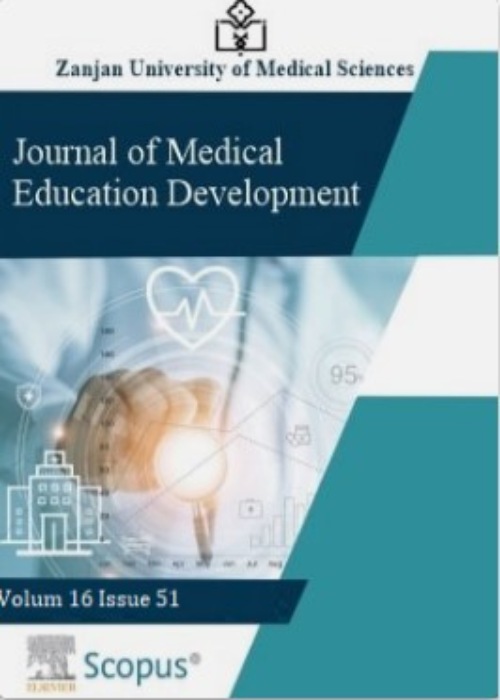The review of the barriers to implementation and institutionalization of Evidence-Based Medicine in clinical wards from residents and clinical attending viewpoints
Author(s):
Abstract:
Introduction
In recent years, many efforts were performed in education and the development of evidence-based medicine at the universities of medical sciences. Most research shows that education and empowerment clinical assistants, medical students and doctors in different ways in Iran and other countries are running, but despite positive effects on increasing the knowledge, skills, and attitudes of the learners, in some cases there was not notable sustainability effects on establishment the evidence based medicine. The present study aims to investigate the barriers to implementation and institutionalization of evidence-based medicine in clinical wards. Materials And Methods
This study was a qualitative approach using content analysis of clinical assistants and medical education experts’ point of view that participating in EBM courses. The current status of implementation of EBM was determined by using a questionnaire with 6 questions and then they were asked about the barriers of the applying the EBM in real environments. Group of experts included the 10 clinical faculty members that participant in focus group study. The view points of clinical assistant and experts were classified by quantitative and qualitative content analysis. Results
After analyzing the views of residents and faculty, barriers to implementation of evidence-based medicine in clinical settings from the perspective of residents was classified in the 31 items and 7 components included facilities, quality of training, follow-up and accountability, the clinical environment, factors related to faculty and clinical assistants. Summary view of 10 faculty members was classified in19 items and 5 factors. Conclusion
The development and institutionalization of evidence-based medicine more than any other factor related to the environmental and individuals attitudes in clinical wards. However, developing this approach requires the strengthening of hardware facilities, law, management support, education and empowerment and sense of responsibility and accountability that all of these factors also affect each other.Keywords:
Language:
Persian
Published:
Journal of Medical Education Development, Volume:8 Issue: 20, 2016
Pages:
87 to 98
magiran.com/p1487231
دانلود و مطالعه متن این مقاله با یکی از روشهای زیر امکان پذیر است:
اشتراک شخصی
با عضویت و پرداخت آنلاین حق اشتراک یکساله به مبلغ 1,390,000ريال میتوانید 70 عنوان مطلب دانلود کنید!
اشتراک سازمانی
به کتابخانه دانشگاه یا محل کار خود پیشنهاد کنید تا اشتراک سازمانی این پایگاه را برای دسترسی نامحدود همه کاربران به متن مطالب تهیه نمایند!
توجه!
- حق عضویت دریافتی صرف حمایت از نشریات عضو و نگهداری، تکمیل و توسعه مگیران میشود.
- پرداخت حق اشتراک و دانلود مقالات اجازه بازنشر آن در سایر رسانههای چاپی و دیجیتال را به کاربر نمیدهد.
In order to view content subscription is required
Personal subscription
Subscribe magiran.com for 70 € euros via PayPal and download 70 articles during a year.
Organization subscription
Please contact us to subscribe your university or library for unlimited access!



